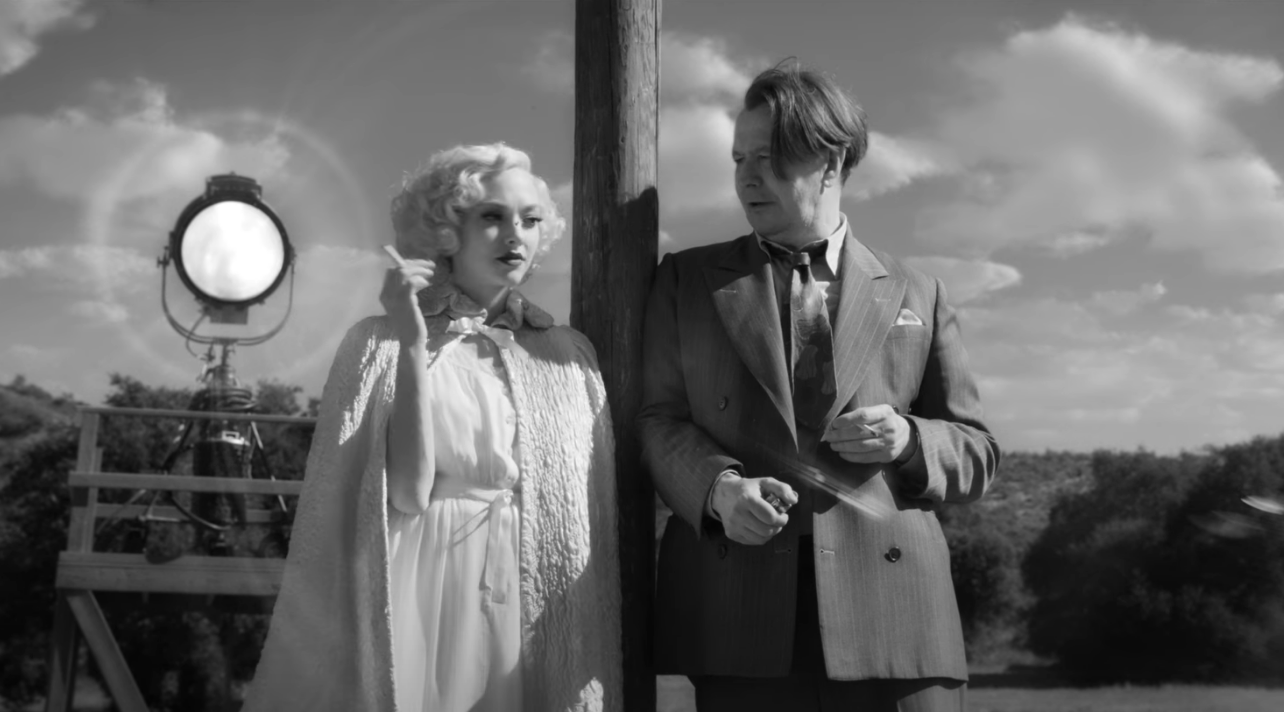
Film Review: Mank
Film Reviews
Mank
Director: David Fincher
Netflix International Pictures
In Theaters 11.30
Streaming on Netflix 12/04
Every generation of serious film scholars have certain films they must see, and certain directors that they know that they are expected to revere. My generation may have adored Lucas and Spielberg, but the works of Coppola, Scorsese and Kubrick were absolutely essential if we expected to be taken seriously in regards to what we took so seriously. For the next generation, one of the big names was David Fincher (Se7en, Fight Club, The Social Network). In the 2000s, if you didn’t appreciate Fincher, well then, you weren’t a true film person.
But the number-one movie for my generation was the same one as the generation before it, and will always remain toward the top. I remember the first time I saw it as well as I remember my first kiss, and far more fondly. It was a special presentation in a grand old theater, which is the ideal way to first experience the majesty and artistry of Citizen Kane.
Mank is the name by which everyone knows screenwriter Herman J. Mankiewicz (Gary Oldman), who is recovering from a broken leg at the North Verde Ranch outside of Los Angeles in the 1930s. Mank isn’t just resting, though—he’s working like mad on a script. And not just any script. The director is a 24-year wunderkind named Orson Welles (Tom Burke, The Musketeers, Strike), who has been given carte blanche by RKO Pictures to make any film he wants, and he gives Mank a deadline of 90 days to produce a first draft. The writer has been assigned a stenographer/babysitter (Lily Collins, Emily in Paris) to keep him on task, and they do their best to drive each other insane.
Flashback to a few years earlier, Mank is at the estate of William Randolph Hearst (Charles Dance, Gosford Park, Game of Thrones), where he meets and befriends a rising starlet named Marion Davies (Amanda Seyfried). He also works with legendary movie moguls. All of his earlier experiences find their ways into the Citizen Kane screenplay, which will go on to be considered one of the greatest movies of all time.
There’s no question that this is a film for film buffs, and it’s not likely to have that much crossover appeal into the mainstream, but it is a foolish and frankly rather pompous mistake to devalue it for that fact. This is more than just a movie about Hollywood—it’s a movie about history, art and American politics. A giant at the top of his art, David Fincher (working from a screenplay by his late father, Jack Fincher) really doesn’t make a single misstep in this epic combination of inspiration and perspiration. The gorgeous black-and-white cinematography by Erik Messerschmidt (Mindhunters) may be digital, Fincher’s chosen medium, but ever one of the most meticulous artists in the business, the director has gone to great effort to make it look authentic to the period. He even goes so far as to add markers for reel changes. The score, by Trent Reznor and Atticus Ross, is a sumptuous orchestral feast that will definitely put them in the running for another Oscar.
Oldman is superb in the title role, and given his extremely prolific and eclectic career, it’s saying quite a lot when I state with confidence that this will be one of the films for which he is most remembered when it’s finally time to look back on his body of work. Fincher has chosen to have the actors perform in the heightened style of the films of the time, a risky choice that pays off handsomely. It’s no surprise that Oldman is great, but who would have expected Amanda Seyfried to be this utterly amazing as Davies, Hearst’s controversial and oft maligned muse? This isn’t just a career best performance for her—it’s a stunner by any standard, as she transports herself and the audiences to another era.
The working title for the Kane screenplay was American, and Mank is as much about the corruption that comes with unchecked capitalism, and the very timely issue of those who will go to any length to make certain that the word “socialism” inspires uncontrollable dread in every patriotic US citizen, especially those who don’t even know what the word means. The elder Fincher’s screenplay is overflowing with a droll wit that is biting, snarky and, at times, profoundly insightful. As for the film’s stance on who wrote what, it’s easy to see where Fincher the chronic perfectionist identifies with both Welles and Mank. Seriously—this is the guy who started his feature career with the colossal embarrassment of Alien 3 and bounced back to become one of the most respected directors in the business. He knows what it’s like to have something to prove to yourself and to the world. But this is ultimately just one version of the story, told from a very specific point of view, and Welles certainly had plenty of opportunities to present his narrative over the decades.
Mank is a masterful film about arguably the greatest of all films. It’s about power, the compulsive need for control, the creative process, personal and artistic conviction, the constant struggle of how we each view ourselves and the endless lengths that we’ll all go to in order to leave our mark on the world. And a note to all millennials who are going into film: Be aware that you will soon be judged on whether or not you saw David Fincher’s movie about Citizen Kane. –Patrick Gibbs
